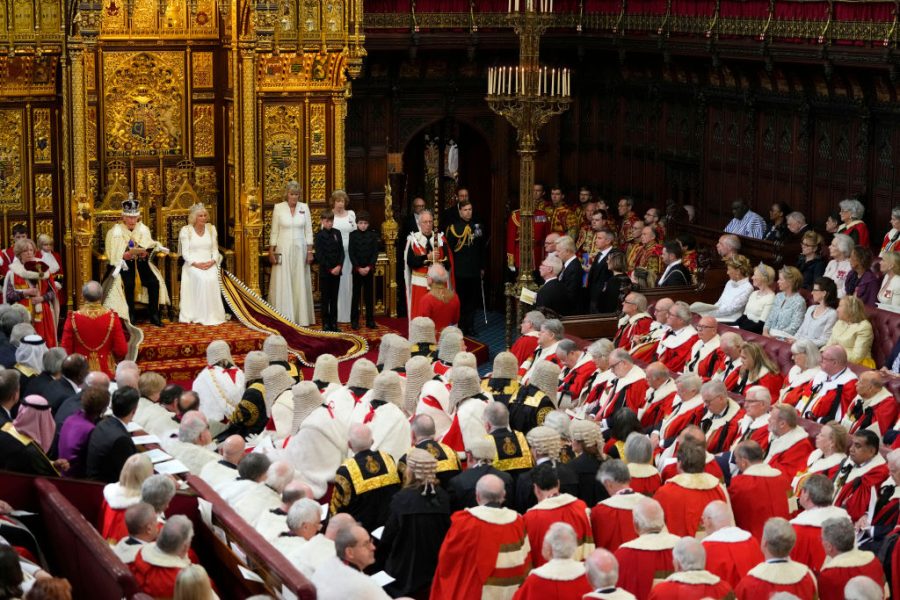Labour’s crackdown on the House of Lords continues apace. In an effort to reform the upper house, parties could soon be made to provide written justification for peerage nominations they put forward. Under the proposal they would have to submit a citation explaining why the candidate is being proposed and what contribution to public life he or she has made.
On its own, this idea is inoffensive. It is, admittedly, transparent in capitalising on the ongoing rumblings over Boris Johnson’s nominations in his 2023 resignation honours: 32-year-old Lord Ross Kempsell, former political director of the Conservative party, and Baroness Charlotte Owen of Alderley Edge (31), a Downing Street special adviser. Other honours, such as those conferred by the monarch are already accompanied by a citation, though often they are self-evident.
Anyone applying for a job knows that CVs can be preened for professional consumption
It is, however, meaningless unless it is somehow policed. Will these citations be scrutinised after a potential peer is nominated? If so, by whom? The obvious body would be the House of Lords Appointments Commission (HOLAC), which already vets candidates for propriety, but there is no indication yet that this responsibility will fall to them. More importantly, will the body which scrutinises these citations be able to reject them and thereby veto nominations for peerages? HOLAC currently cannot prevent a peerage being awarded, even if it recommends against it, as was the case with Lord Cruddas – the banker and Conservative donor nominated by Johnson in 2020, in defiance of HOLAC’s objection.
Let us be generous. Perhaps Sir Keir Starmer really is willing to tie his own hands by creating an authority which could block his nominations to the House of Lords (though it would be an extraordinary act of self-abnegation). But it is typical of the party that a vague, superficially reasonable notion, which can conveniently be used to twit the opposition, has been briefed to the media without any explanation of how the idea would be anything more than a formality.
Anyone who has applied for a job knows that a CV can be primped and preened for professional consumption. Labour has been happy to pile in on Kempsell and Owen, though it was rather less vocal at Plaid Cymru’s nomination earlier this year of the then 27-year-old Carmen Smith. At the time of her nomination, Baroness Smith of Llanfaes – as she now is, had reached the heights of acting chief of staff to her party’s 13-strong group in the Senedd.
Would all of Labour’s nominations pass muster? I cast shade on no member of the upper House, but, for example, Baroness Ayesha Hazarika was a special adviser to Ed Miliband as leader of the opposition – not the most successful period of his professional life – before turning to stand-up comedy and political commentary. Lord Gerald Shamash, a veteran of Labour politics, is distinguished primarily by being the party’s solicitor, having advised it during the ‘cash for honours’ scandal and the controversy over parliamentary expenses. Baroness Pauline Bryan of Partick, meanwhile, was a founding member of the Keir Hardie Society.
In its current composition, the House of Lords consists of (at least) two sorts of peers. There are those who are rewarded for substantial public or political service and whose experience can be a useful resource when the House is legislating and scrutinising policy. And then there are the ermine-clad Poor Bloody Infantry, the foot soldiers all parties need to dedicate their time to the House and make it function. In that latter category, party leaders should all have a degree of flexibility in whom they choose. You may disagree with the composition of the House of Lords, but that is a separate argument. What the government is proposing to do is make changes to it in its current form.
The Prime Minister is also keen to reduce the size of the House of Lords. ‘We’ve got 800-plus members of the Lords,’ Starmer said in July. ‘It’s simply too big; we need to reduce it.’ This is a common complaint, and it is a frank nonsense. It is true that there are currently 803 peers, with another 25 on leave of absence, disqualified or suspended from sitting. But the nature of the Lords is that there is no requirement, necessity or value in all of them attending at once, and they do not.
Average attendance by session – that is, the Lords’ regular active membership – it is in the high 300s or 400s, and has never, in history, exceeded 500. In reality, then it is much smaller than the House of Commons (with 650 members), or the Bundestag (733) or the Assemblée nationale (577). It is a function and an advantage of the House of Lords that peers attend when they are able to make a contribution (and therefore are paid a daily allowance for attending, rather than a salary).
Supporters of House of Lords reform come in many guises. Some are constitutional obsessives who have detailed plans for changing or replacing it. Others have a vague sense that it is in various ways wrong or unsatisfactory and want ‘something to be done’. But for some it is a progressive safe haven, a virtuous place to go back to when reality is too much to bear. The latest idea, without solid mechanisms to make it work, is just a political knee-jerk for a few good headlines.








Comments